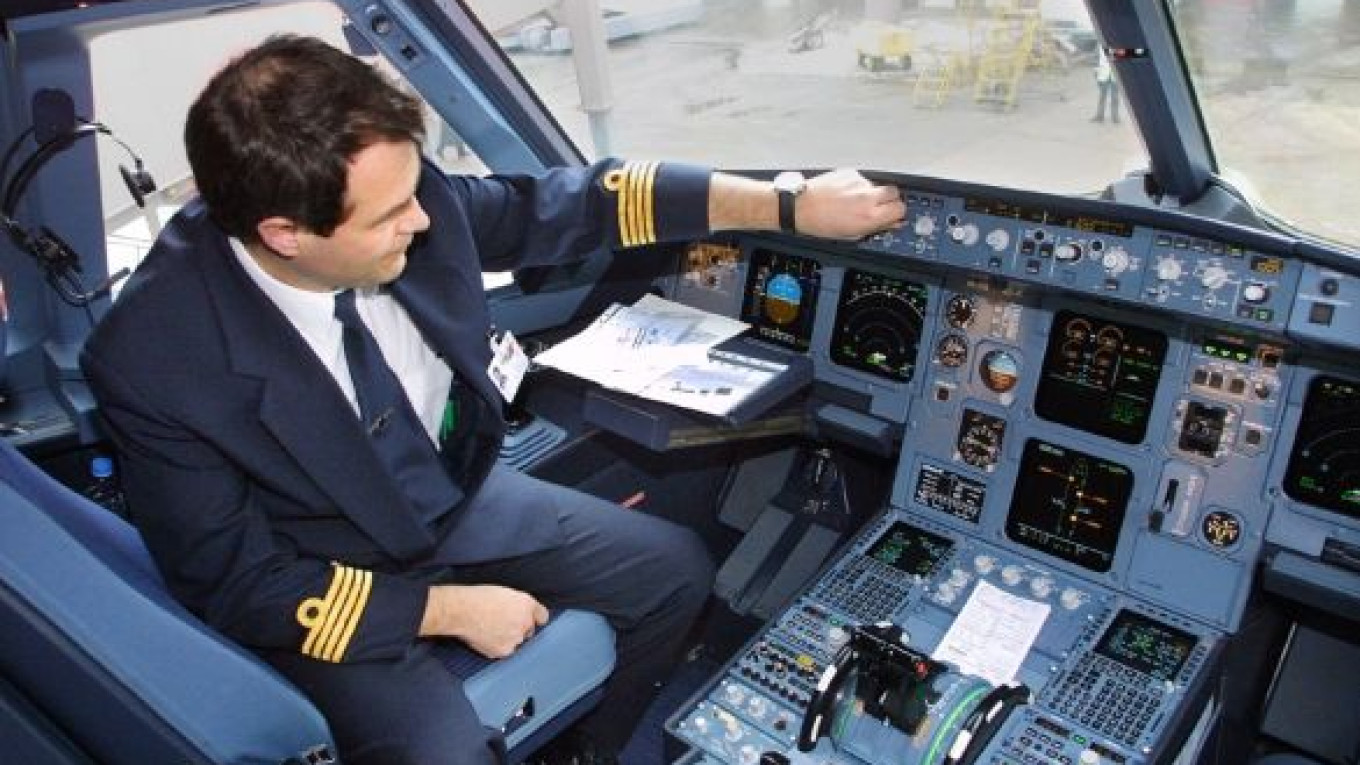Russian pilots and air traffic controllers at the country's international airports will be required to conduct all conversations in English starting in March 2011, and the practice could eventually be extended to domestic flights.
English could become the only language for communication between traffic controllers and pilots for non-military Russian flights, said Alexander Neradko, head of the Federal Air Transportation Agency.
Currently, both Russian and English are used for radio communication at the country's international airports, while the rest only use Russian.
Neradko said it was difficult for dispatchers to accept incoming flights in two languages, posing a safety risk. The conversations are held on one frequency, meaning that they are heard by all pilots, who need to know what nearby planes are doing, he said.
In March, all international airports will switch to English. At the same time, pilots and staff will be required to demonstrate Level 4 conversational skills according to the six-level scale of the International Civil Aviation Organization, or ICAO.
The organization had planned to introduce that requirement in 2008, but a three-year delay was requested for several countries, including Russia, to train pilots and flight control staff.
In Russia, knowledge of "radio-exchange terminology," a standard set of commands and phrases, is all that is needed now, Neradko said.
The new ICAO standards would require a knowledge of English comparable to that of graduates from the Moscow State Institute of International Relations, he said, adding that companies were ready to make the change.
Level 4 under the ICAO system is roughly equivalent to the knowledge of a high school student who scores a B- or C+ in English, said Sergei Melnichenko, deputy head of the language school Kompleng, which has a program for aviation professionals.
The current level is adequate for standard flights, he said. But in an emergency, more fluency is needed to give advice and make quick decisions, requiring at least Level 4 knowledge, Melnichenko said.
In March, a Swiss Air flight taking off from St. Petersburg's Pulkovo Airport struck a flock of birds, causing vibrations in both engines and forcing the pilots to issue a Mayday signal. The air traffic controller was unable to understand the problem for several minutes until a pilot on another plane explained the situation in Russian.
An eight-minute audio recording of the incident, including further miscommunication once the plane had safely landed, was eventually posted online. Aviation officials have confirmed its authenticity.
Airlines say they are ready for the new rules. Transaero began preparing to comply with the ICAO standards in 2004, and since 2006 it has been testing its pilots, a spokesman said. By March, Transaero pilots will be fully compliant, he said.
An Aeroflot spokesperson said knowledge of English at Level 4 or better was one of its main requirements for hiring pilots.
Aeroflot, the country's largest carrier, has even suggested switching to English at all of the country's airports, Neradko said, adding that the proposal was being considered.
The Aeroflot spokesperson declined to comment on the matter.
Not everyone likes the idea. A full switch to English only makes sense for mixed airports that handle international and domestic flights, said Andrei Martirosov, chief executive of UTair. "There's probably no need to require the use of English for domestic flights. That could have a negative effect on small airlines that fly between minor cities and towns," he said.
In Europe, English is required at international airports, while domestic flights operate in the national language, Martirosov added.
A sharp change in English requirements would be economically ineffective, said Oleg Panteleyev, director of the Aviaport industry news site.
"Most pilot crews at the majority of airlines are nearing pension age, and spending money to improve their language skills isn't worth it," he said. "Young people need the training."
Most companies pay for pilots to improve their professional qualifications, Melnichenko said. The Level 4 training course requires 180 hours, which can cost up to 40,000 rubles ($1,300) per person.
The state-run company that hires and manages all flight controllers did not respond to a request for comment.
A Message from The Moscow Times:
Dear readers,
We are facing unprecedented challenges. Russia's Prosecutor General's Office has designated The Moscow Times as an "undesirable" organization, criminalizing our work and putting our staff at risk of prosecution. This follows our earlier unjust labeling as a "foreign agent."
These actions are direct attempts to silence independent journalism in Russia. The authorities claim our work "discredits the decisions of the Russian leadership." We see things differently: we strive to provide accurate, unbiased reporting on Russia.
We, the journalists of The Moscow Times, refuse to be silenced. But to continue our work, we need your help.
Your support, no matter how small, makes a world of difference. If you can, please support us monthly starting from just $2. It's quick to set up, and every contribution makes a significant impact.
By supporting The Moscow Times, you're defending open, independent journalism in the face of repression. Thank you for standing with us.
Remind me later.


